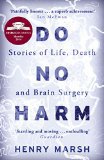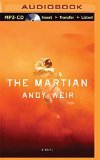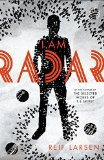Shortlisted for 2015 Wellcome Book Prize and 2014 Costa Biography Award
Five words from the blurb: brain, operate, pressures, dilemma, lives
Henry Marsh is a neurosurgeon and this book explains what life is like for a man performing dangerous operations on a daily basis. The book is made up of a series of short stories, each describing a different set of cases that he’s operated on. It vividly explains the pressures faced by a surgeon; beautifully describing both the guilt felt when procedures go wrong and the pride when lives are saved.
The brain suddenly swells and arterial blood shoots upwards, turning the operative site into a rapidly rising whirlpool of angry, swirling red blood, through which you struggle desperately to get down to the aneurysm. Seeing this hugely magnified down the microscope you feel as though you are drowning in blood. One quarter of the blood from the heart goes to the brain – a patient will lose several litres within a matter of minutes if you cannot control the bleeding quickly. Few patients survive the disaster of a premature rupture.
Neurosurgeons require our respect and admiration and this book shows the large amount of skill and knowledge they need in order to work successfully. I’m very pleased they are able to perform these lifesaving operations as I know I wouldn’t have the courage to make millimetre-perfect incisions in other people’s brains. The book is very readable, but it is filled with technical terms. An effort is made to explain the terminology, but I still felt as though much of it went over my head. I can’t criticise the book for this as it made it feel authentic, but it distanced me from the much of the action.
I also found that after a while the chapters began to feel much like one another. Each case may have been technically different (and of interest to those with a specialist knowledge) but, as a lay person, cutting into the brain felt very similar no matter which area was damaged. As a consequence it began to feel repetitive and I found myself increasingly losing interest in the text.
This is a very important book and I’m pleased I read it, but unfortunately it didn’t bowl me over in the way I’d hoped it would.

.
The thoughts of other bloggers:
…a beautiful, honest and intriguing look at the world of brain surgery. Biblio Beth
…it does go into the details of several operations, so if you’re especially squeamish, you might want to avoid. Curiosity Killed the Bookworm
…a remarkable account of the philosophical dilemmas of modern medicine. A Little Blog of Books








